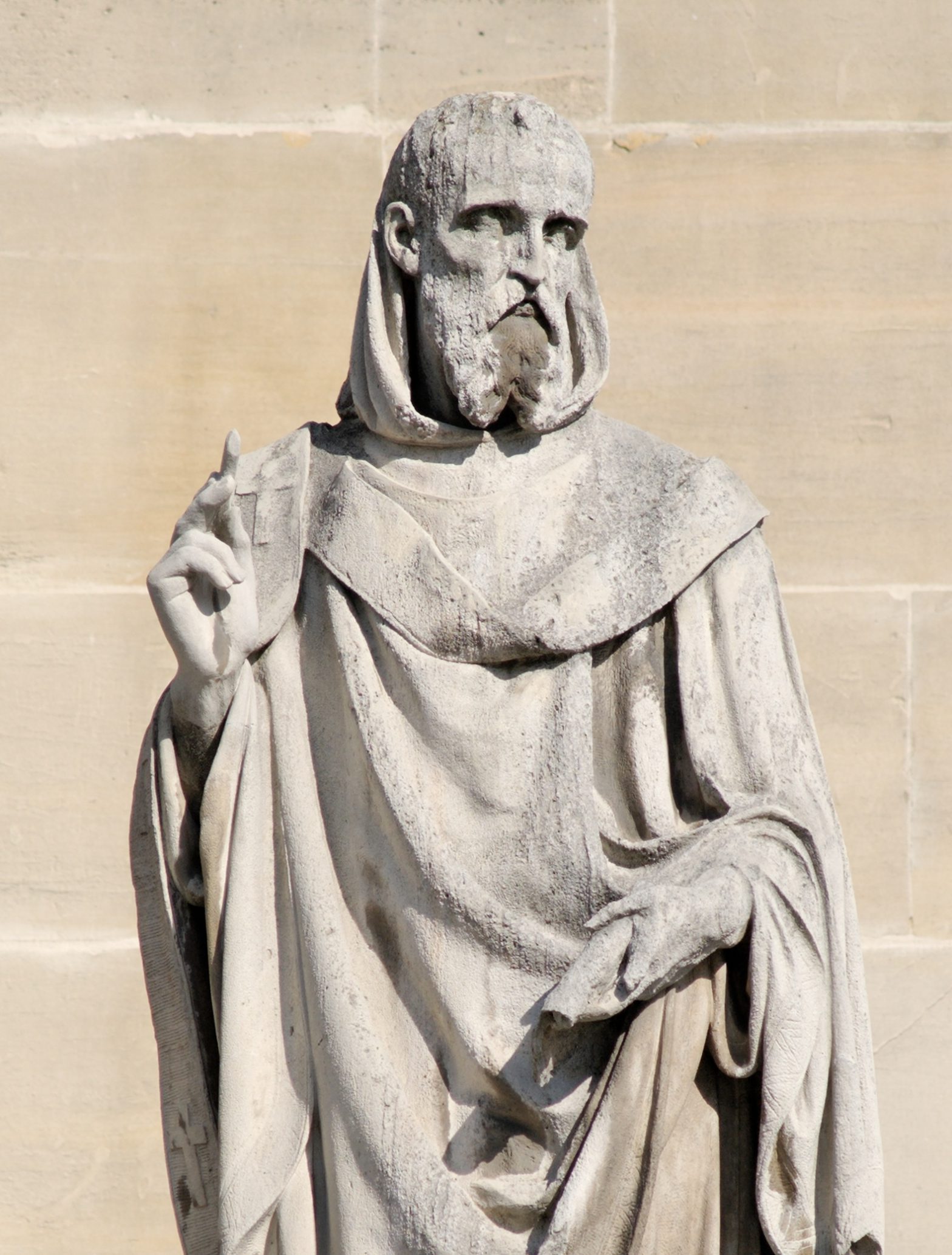I like Gregory of Tours. His feast is November 17, but I opted to talk about Möbius that day, so we’ll consider Gregory today, on the anniversary of his birth, A.D. November 30, 539.
Students at Scholars Online have the rare opportunity to read Gregory, in English in Western Literature to Dante, or in Latin in the Medieval Latin course, during their high school years. I first met Gregory during my senior year in college, when I took a class in Medieval Latin from Dr. Robert Palmer at Scripps College in Claremont, along with Dr. Bruce McMenomy. In Gregory I found a kindred spirit: he made the same kinds of errors writing Latin that I made in Latin prose composition exercises. Our shared warped sense of grammar made it easier for me to read Gregory than the more accomplished stylists Cicero or Peter Abelard.
But there’s more to appreciate about Gregory than his facility or lack thereof with Latin. He was the first major historian of French history, recording the deeds of the Merovingian kings of France, and his History of the Franks is one of the reasons we know so much about Clovis I (November 27). He was born into a family descended from the Roman nobility in Gaul, and related to a number of church authorities, so he had access to both a classical education and a theological one. From his own writings we learn that he was familiar with the Aeneid, Orosius’ Chronicles, Sallust, and the Vulgate Bible. He lamented that his education neglected “profane literature”, i.e., secular classical literature, which could have given him greater insight into complex situations.
Despite his birth and connections, Gregory appears to have been aware of his own shortcomings, and genuinely humble and pious. He was respected by officials in the church and at court, and among the common people. At the age of thirty-four, he was consecrated Bishop of Tours in response to public acclaim. He proceeded carefully to balance the interests of church and state, the older Gallo-Roman nobility and the new Frankish rulers, the old imperial culture and the newly forming medieval mindset. His influence was extensive, since Tours was a center of pilgrimage for the cult of Martin of Tours (November 8). He took his responsibilities seriously, addressing the dangers of heresies (particularly the Arian heresy, which had become popular with the Germanic tribes) and negotiating settlements in secular disputes.
In Book VII of his history, Gregory relates a disagreement that arose between two nobles, Sicharius and Chramnesindus. It was no trivial matter: servants died and family members were murdered, and judgments and penalties imposed on both sides. Gregory sent for the parties in an attempt to stop the bloodshed and prevent the dispute from spreading further. In order to settle the feud, Gregory paid out church funds as wergild, the penalties. He sought not just a legal settlement but also a true reconciliation, and for some time the two men were friends, constantly in each others’ company. But then Sicharius taunted Chramnesindus and as the old bitterness returned, he killed Sicharius.
There’s a lot we can learn from this story. Gregory offers no moral judgment for the reader; he tells the story with some graphic details, laying bare a real situation which is all too familiar, between neighbors who grow to hate each other. But he also models for us the Christian who attempts reconciliation and peace, and is willing to pay the cost himself.
Understanding of grammar and the precision of language is a useful discipline, necessary for properly expressing ourselves, and one of the ways to hone this understanding is to learn Latin. But the greater goal of learning the classical languages is to read the works composed in those languages, not just the poetry and speeches of ancient Rome, but also the stories and theology and history of Medieval and Renaissance Europe.

